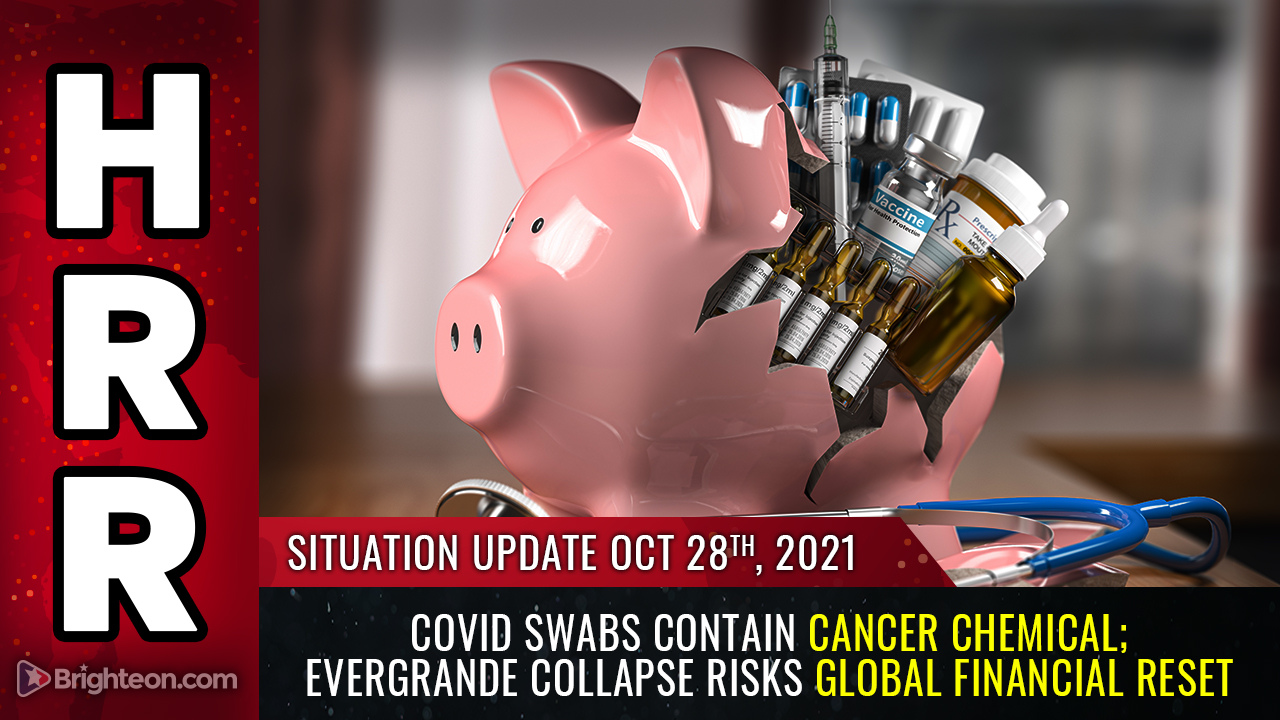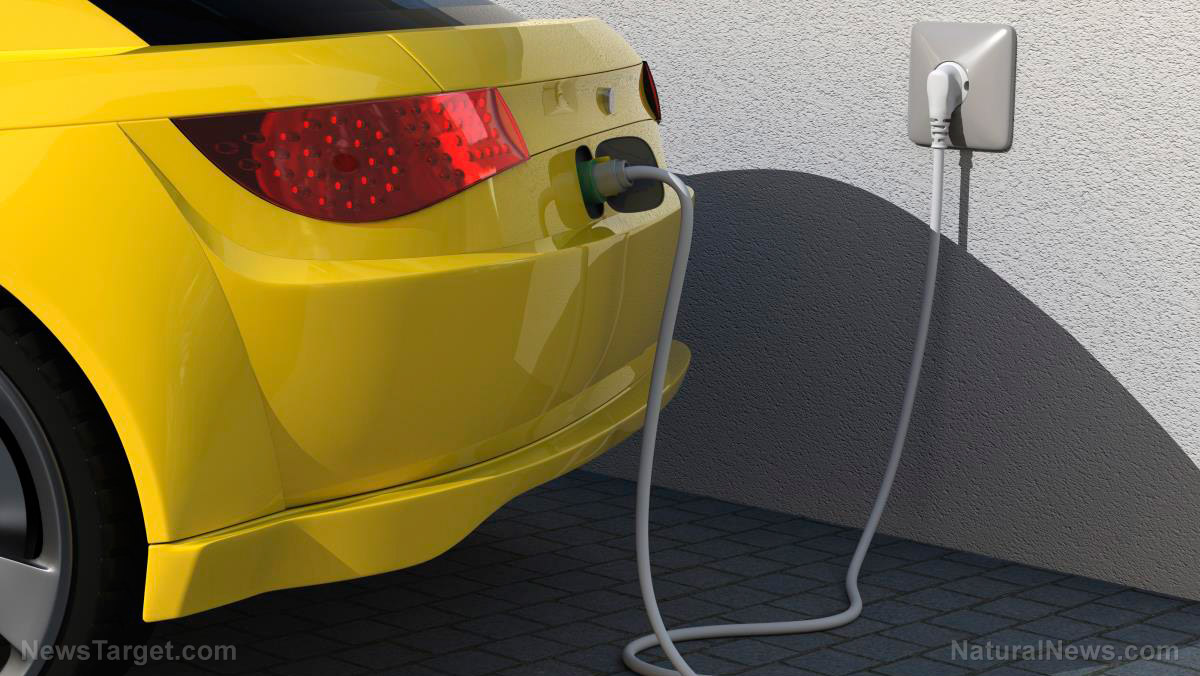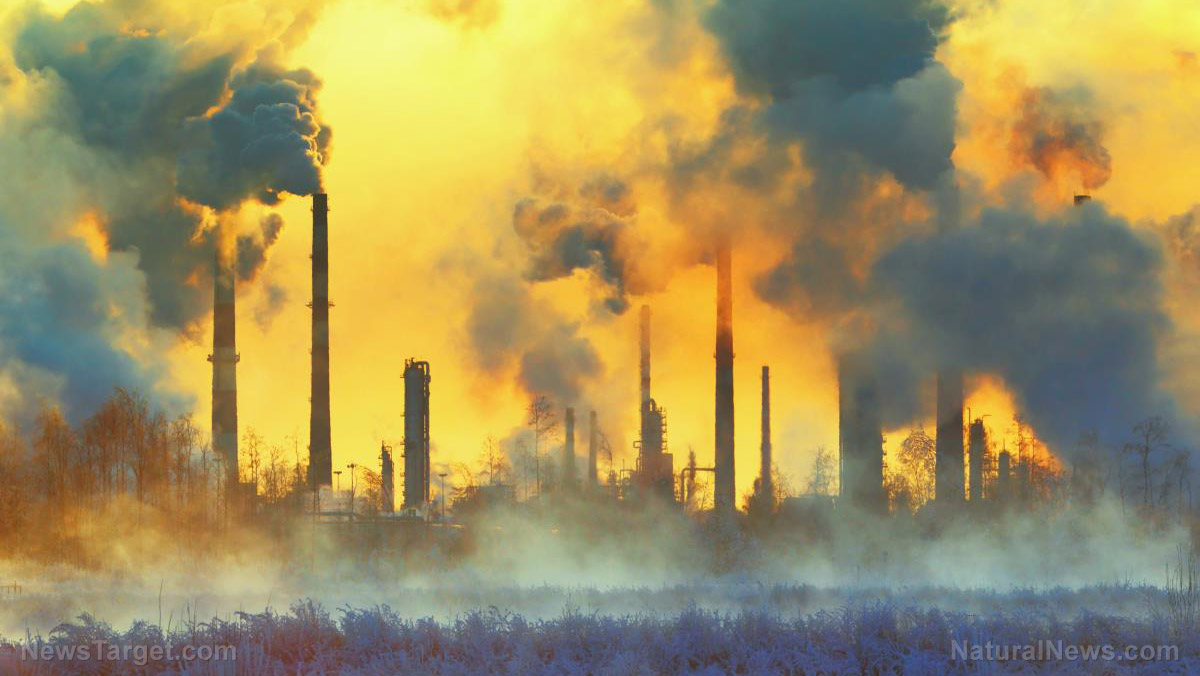Carbon taxes are here: World’s largest carbon capture pipeline to be constructed in the Upper Midwest
12/22/2021 / By Lance D Johnson

Carbon taxes have arrived to the United States. The Biden regime will be immediately funneling over $600 million taxpayer dollars to a company in Iowa named Summit Carbon Solutions. In 2022, this company will be negotiating with landowners across the Upper Midwest, to set up the $4.5 billion Midwest Carbon Express project.
The world’s largest carbon capture pipeline is projected to transport 12 million tons of carbon dioxide every year. The project will connect thirty-one ethanol plants along the way, on a route that connects Iowa, Nebraska, Minnesota, South Dakota and North Dakota. The carbon dioxide will be stored underground indefinitely at a destination/evaluation site in North Dakota.
Midwest Carbon Express will initiate indefinite carbon taxes in the US
When completed, the Midwest Carbon Express will span 2,000 miles, incentivizing low-carbon fuel, while storing carbon dioxide underground. With the federal government backing the project, it is unknown whether imminent domain will be used to force landowners to provide an easement for the pipeline. For now, Summit Carbon Solutions is scheduled to meet with all affected landowners along the 2,000-mile route. The company has yet to apply for permits in any of the five states.
The project will likely garner support from the thirty-one ethanol plants. These plants will benefit from increased access to the low carbon fuel market and from federal incentives that will automatically boost their profits. Due to taxpayer investments, the ethanol plants won’t have to make any additional investment in the pipeline’s construction. Jake Ketzner, vice president of governmental affairs with Summit Carbon, is already calling the project a “transformational project for the future of agriculture.”
Another carbon capture pipeline is already taking advantage of the situation. Navigator Heartland Greenway LLC is currently conducting 37 public informational meetings in Iowa to discuss plans for a five-state, 1,300-mile pipeline system that will capture carbon dioxide from local facilities. This pipeline will cross over the northern border of Iowa into Minnesota, travel east into South Dakota and back south into Illinois, where it is expected to sequester up to 15 million metric tons per year.
The ethanol plants are given a carbon score to motivate their compliance. In the future, these carbon scores could be used to incentivize further compliance with carbon mandates and financial incentives doled out by the federal government. Tharaldson Ethanol in Casselton, North Dakota could achieve a negative carbon score in the near future if their plant captures and transports a majority of the 1,500 tons of carbon dioxide it produces every day. The Midwest Carbon Express will help them achieve that goal, capturing 80 to 90 percent of their carbon dioxide. “It really helps us long-term in sustaining our business,” said Ryan Thorpe of Tharaldson Ethanol. “Secondly, with there being rapid movement to a lower carbon footprint, the ethanol industry can’t drag its feet,” he said.
American industries are being forced to accept global environmental agendas through the use of authoritarian economic forces imposed by their own federal government. Whatever is right for the environment is based on decisions made by global bureaucrats and their propaganda campaigns and financial incentives (which include carbon taxes levied on the people).
A federal program will pay $50 for every ton of carbon dioxide that is stored underground over the course of twelve years. Another proposed tax credit could increase the incentive to $85 per ton. Taxpayers will foot the new carbon taxes, which could be well over $1 billion for one project alone. These tax incentives provide 20 percent of the company’s revenue, propping up an industry that wouldn’t otherwise exist under regular free market conditions.
Opposition is growing toward carbon pipelines
The affected states in the Upper Midwest have rules in place for oil pipelines, but they do not have guidelines for companies seeking to build pipelines that needlessly funnel carbon dioxide through the ground. Environmental group Clean Up the River Environment (CURE) is protesting the project to protect the environment across the affected states. CURE Director Peg Furshong said the farmers need allies because “the only information they’re going to get is from people who want something from them.” She doesn’t want to see landowners signing a voluntary easement, because once they do, “they can’t get it back, even if the pipeline isn’t built.”
Other groups that oppose the carbon capture pipeline include: The Iowa Sierra Club conservation program, Food and Water Watch and Iowa Citizens for Community Improvement. These groups have already dealt with disagreements and lawsuits in an attempt to hold oil pipeline projects accountable for land destruction and crop loss. When pipelines are built, the land is not always restored to its previous condition.
“There are outstanding damages to this day that have never been fixed,” Iowa Sierra Club conservation program coordinator Jess Mazour said, referring to the Dakota Access pipeline. These immediate environmental concerns will likely be overlooked as the project is marketed for the “greater good” of meeting the Paris Climate Agreement. The Biden regime re-entered this treaty on February 19, 2021. The atmospheric repercussions of storing carbon dioxide under the ground long term have not been considered.
The Iowa Utilities Board is already trying to make the process clandestine. They ruled on November 23 that Summit Carbon Solution’s contact list should be kept private. This will prevent open communication between the individual property owners, while blocking the project’s opposition from having direct access to the affected landowners. The agenda is clear.
Sources include:
Tagged Under: big government, carbon dioxide, carbon pipelines, carbon taxes, Ecology, environment, ethanol incentives, global environmental agendas, green tyranny, land destruction, mandates, paris climate agreement
RECENT NEWS & ARTICLES
COPYRIGHT © 2017 CARBON DIOXIDE NEWS




















